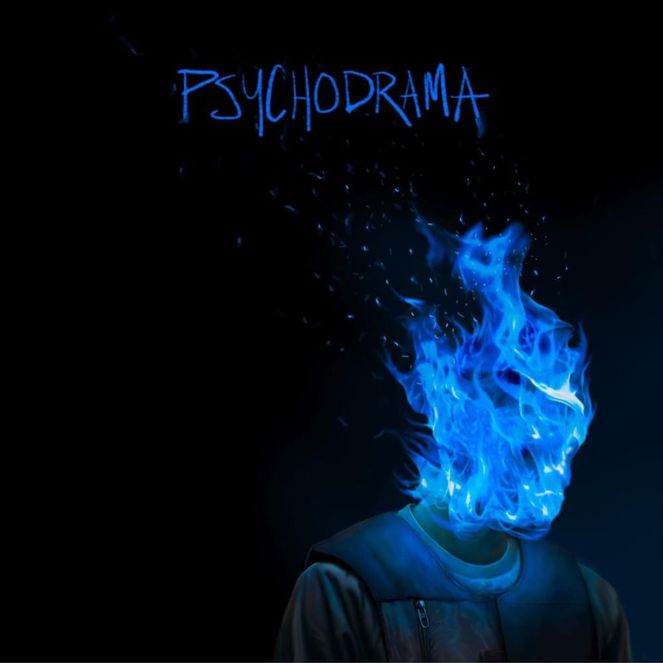
Title: Psychodrama
Artist: Dave
Record Label: Neighbourhood
Release Date: March 7, 2019
Rating: 3/5
It’s crazy to think that Dave is only 20 years old, but it’s true. The UK rapper and occasional grime MC rose up in the scene as a teenager with popular freestyle videos, successful mixtapes and collaborations with huge artists including Drake. His musical catalog is already deep, including hits like “Wanna Know,” “100M’s” and “Funky Friday.” That’s why Dave’s debut album Psychodrama doesn’t feel like a debut album, let alone an effort recorded and partially produced by a 20-year-old.
But that makes the album all the more impressive. Dave approaches Psychodrama with personality, urgency and honesty, creating a polished product that feels complete and sounds excellent. Ironically, it’s Dave’s lyrics, which he built his reputation on, that hold the album back from greatness.
Psychodrama is designed to play out like a therapy session, complete with narrated interludes by a therapist character who speaks with Dave about dealing with pain and leaning on people he trusts. The concept is cohesive enough to hold the tracks together but loose enough that the album doesn’t feel constricted by it.
Beyond the therapy concept, Psychodrama is held together by tight instrumentals featuring creative piano and keyboard riffs courtesy of Dave and producer Fraser T Smith. These instrumentals pave a perfect foundation for songs about everything from mental health to partying to coping with the incarceration of a family member.
Dave’s wordplay is in top form on Psychodrama. It is to the point where it often takes multiple listens to grasp his most complex puns and metaphors. In most cases, this is a fun addition, such as the goofy astrology reference on “Purple Heart” where Dave tells a love interest, “You’re a gem and I ain’t even talking about the star sign.” (Get it? Gemini)
But all things are best enjoyed in moderation, and there are some times on Psychodrama where it seems like Dave is flexing his pun skills at weird times. An example of this is at the emotional climax of “Lesley,” an 11-minute epic about a woman suffering in an abusive relationship. Was it really necessary for him to say “I don’t wanna talk loads; one more line before I dash like Morse code” in the middle of a story about relationship violence?
Despite that, there’s no questioning that Dave takes his position of influence as an artist seriously on this album, as he advocates for social justice issues on several tracks. “Lesley” is one of the clearest examples of advocacy, including a fourth-wall break where Dave raps directly to the listener, “I’m begging you to get support if you’re lost or trapped.”
The album’s lead single “Black” also focuses on issues of social justice, telling the story of Dave’s experiences growing up as a black man in London and highlighting racial and social inequalities. None of the socially-conscious songs on “Psychodrama” feel clumsy or patronizing, which definitely increases their potential to have a real-world impact.
Unfortunately, the presence of such meaningful songs on “Psychodrama” makes the album’s pop/party songs feel weird. I’m not saying pop/party songs can’t coexist with socially-conscious ones, but my perception of Dave as a women’s advocate on “Lesley” is complicated when he turns around on another song and raps, “getting brain from a Dane whose first name I can’t pronounce.” Outside of “Lesley,” almost every mention of a woman on the album is in the context of Dave wanting to have sex with her — not a good look for an artist who clearly wants to impact young people through his music.
I definitely see where Dave is coming from with his attempts to make music for parties and radio in addition to his advocacy songs. He even says it himself on the song “Psycho”: “I could be the rapper with the message like you’re hoping, but what’s the point in me being the best if no one knows it?” The album’s party songs are really good, too — “Disaster” and “Voices” are certified bangers — but surely Dave could have avoided lyrics that paint him as sexist and possibly culturally insensitive (see the second verse in “Location”). I hate to sound like the political correctness police, but some of the lyrics on Psychodrama just don’t stand up to scrutiny.
Overall, this album has something for everybody, as proven by its #1 spot on the UK album charts, but the complete work is worse than the sum of its parts.